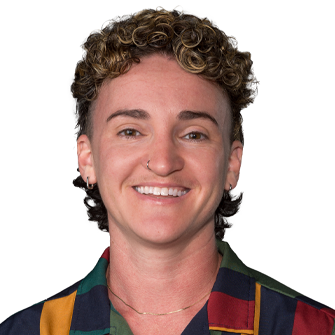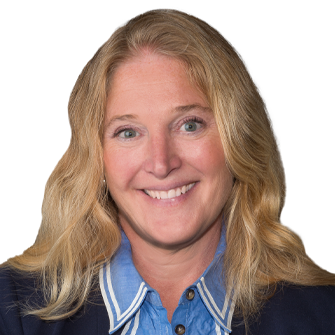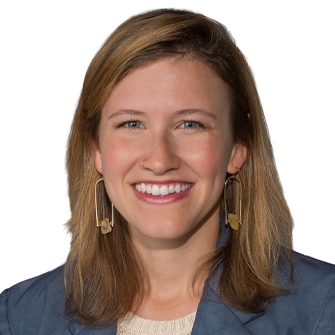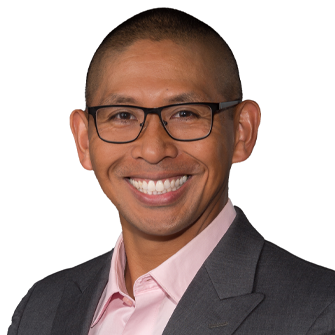‘Challenging and exhilarating’: Meet the 2023-24 social work Ph.D. cohort




The VCU School of Social Work’s Ph.D. Program welcomes four new students for the Fall 2023 cohort. They are
Why did you choose to pursue a Ph.D., and why was the VCU School of Social Work your choice?
Kade Goldin
I chose to pursue a Ph.D. in hopes of learning how to conduct research that could inform policy, develop accessible interventions and coordinate community support programs. The VCU School of Social Work was my first choice due to their focus on establishing positive community connections and upholding social justice as a core program principle.
Marianne Lund
I choose to pursue a Ph.D for three reasons: I have a passion for research, it would create teaching opportunities, and it would allow me to develop skills such as critical thinking and problem solving, while learning new research methodologies. Beyond these three reasons, a Ph. D represents for me a personal achievement, as I will be the first woman in my family to earn such an esteemed degree. VCU was a clear choice for me, as it is community-oriented, has excellent teachers and is committed to teaching the next generation how to be social formers.
Rose Miola
I chose to pursue a Ph.D. after six years of full-time clinical work for a few reasons. On a personal level, I was deeply ready to shift into something that was not only clinical, but a little more macro. I was looking to change from solely doing individual therapy to being a part of change on a more systemic/macro level, and I felt that getting a Ph.D. would help me accomplish that goal.
On a professional level, I wanted to be a part of educating future social workers on clinical practice, specifically in providing compassionate and empowering mental health and substance use treatment, and in examining one’s own privilege and role in systems of oppression. Additionally, I was interested in learning how to research so as to bring more evidence-based understanding to clinical practice, and also to bring more resources to the community.
Sam Ochinang
I chose to pursue a Ph.D. in social work because it will improve my research skills and give me the opportunity to influence organizations at a higher level.
What are your expectations as you join the program and start your journey?
Marianne Lund
I expect it will be challenging and exhilarating all in the same breath.
Rose Miola
I am trying to keep expectations to a minimum! I do have hopes to grow, though, and already I am feeling that growth happen intellectually, socially and personally. I’m excited to be a part of this and feel I’m in the right place for me.
Sam Ochinang
I expect to be challenged and supported – both are ongoing =).
Are there any faculty connections that drew you to the program?
Kade Goldin
I had a wonderful professor in my M.S.W. program, Dr. Madeline Lee, and she spoke highly of Dr. Maurice Gattis, Dr. Youngmi Kim and Dr. Hollee McGinnis during their time together at Washington University (St. Louis). Getting to work with them, as well as Dr. Alex Wagaman, was a big draw for me.
Marianne Lund
Yes, I wanted to work with Dr. Humberto Fabelo, Dr. Hyojin Im, and Dr. Denise Burnette.
Rose Miola
I really enjoyed speaking with Dr. Mer Francis before I began, because they spoke about how they saw research from a community-organizing perspective, in that they try to collaborate as much as possible with community members and their desires/needs. This ultimately made me see how research can be deeply rooted in social justice work and empowerment of communities. The way Dr. Mer Francis spoke about the research part of their job drew me into it and made me think about it in a new way.
Additionally I enjoyed meeting with Dr. Nicole Corley, because she gave me insight into how she has used her qualitative research to lift and amplify others’ voices and stories.
Sam Ochinang
Dr. Karen Chartier and Dr. Denise Burnette.
What social problem are you trying to solve, and/or what population will you focus on?
Marianne Lund
I am interested in the population of Hispanic Immigrants and how to increase accessibility to health care.
Rose Miola
My interest is in trauma treatment, and supporting access for marginalized communities. Specifically, I am interested in whether EMDR (Eye Movement Desensitization and Reprocessing) therapy can be utilized for racial and intergenerational trauma for Black clients and how the race and/or anti-racist training of White clinicians might impact the efficacy of the trauma treatment.
Sam Ochinang
I am interested in studying suicide and military families. My hope is that my work will be transferable to other populations and help develop policies that organizations can use to improve resiliency.
Where do you see yourself at the end of the program?
Kade Goldin
I could see myself as a social work professor, nonprofit coordinator, policy developer for a human rights organization or working in a public school setting as a director of student support services. I feel open to the many opportunities that are available to social work Ph.D. students.
Marianne Lund
I see myself teaching and conducting research, or teaching and working for a research-based think tank.
Rose Miola
I am hoping to have a faculty position at a university teaching social work, and also maintain a small clinical caseload on the side to keep me grounded in the realities of clients and the vulnerabilities and challenges of doing social work in the field.
Sam Ochinang
At the end of the program I see myself teaching future military social workers and other behavioral health providers. I’ll also be involved in multiple projects and articles.
Any fun facts or interesting background stories you want to share about yourself?
Rose Miola
I have 2 little ones – one that is 11 months and one that is 3! They keep me laughing and busy and also very tired!
Sam Ochinang
I can solve a 12-sided Rubik’s Cube (called a Megaminx).